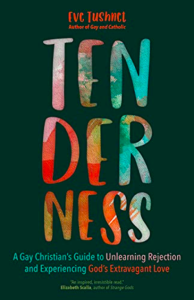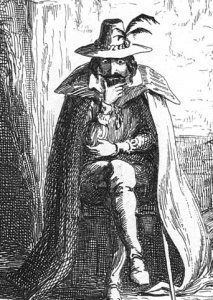And now, let’s pivot to my dissatisfaction with Archbishop Chaput’s column. He lays out several discrete concerns about Fr Martin’s ministry, helpfully numbered. Let’s begin at the beginning.
1. Father Martin suggests that same-sex attracted people and people with gender dysphoria should be labelled according to their attraction and dysphoria … But while the Church does teach that the body is integral to human identity, our sexual appetites do not define who we are. If we are primarily defined by our sexual attractions, then, in order to be fulfilled, it would follow that we must identify with and act on our attractions.
The first problem with this is that Fr Martin didn’t say that. I dug up the article to which His Excellency alludes, and what Fr Martin in fact said is this:
Naming LGBT people what they ask to be named is part of the “respect” called for by the Catechism of the Catholic Church. This may be the most important reason to use the term LGBT … Refusing to call a group by the name that most in the group prefer borders on disrespect. LGBT youth, who are often harrassed, bullied, and “called names,” are especially attentive to disrespectful language.
The difference between His Excellency’s “should be labelled by their attractions” and Fr Martin’s “should be labelled as they prefer” is enormous. The one presumes that the label is philosophically reductive (thus incidentally showing the author’s unfamiliarity with LGBT activism and literature); the other recognizes that it is common politeness to address people as they ask you to. And common politeness is the form that respect most often takes.
As for the Archbishop’s theoretical basis for refusing to use such language, well, Fr Martin addressed that too, in the same piece.
When people describe themselves as LGBT it does not mean that they consider their sexuality or [gender] identity the dominant trait of their personhood, any more than people who refer to themselves as “Italian Catholics” or “elderly Catholics” consider this the dominant trait. … Using an adjective is not equivalent to defining a person or group in terms of one characteristic. Likewise, the term does not constitute a declaration of support for a political ideology or theological position. For example, when a young person identifies as “gay” or “lesbian,” he or she is simply expressing a part of who he or she is, not making a claim about any controversial issues.
Speaking from my own experiences as a gay man and occasional activist before and since converting to Catholicism, Fr Martin is completely correct. In fifteen years as an out queer person, I can count literally on the fingers of one hand the number of queer-identifying people who consider LGBT language to imply any specific philosophy of the human person; it isn’t even usually a philosophy of sex. Anyone who has spent time in queer spaces will tell you that holding labels lightly and being willing to alter our usage (and, especially, respecting the labels others use) is accepted etiquette among us, precisely because we don’t reduce ourselves or one another to these labels—precisely because these labels are personal and social rather than ontological, and are governed by the rules of social interactions accordingly. And two of the big rules of social interactions are: don’t tell other people what they mean, and don’t ignore them when they ask you to address them as they prefer.
Images via Pixabay












